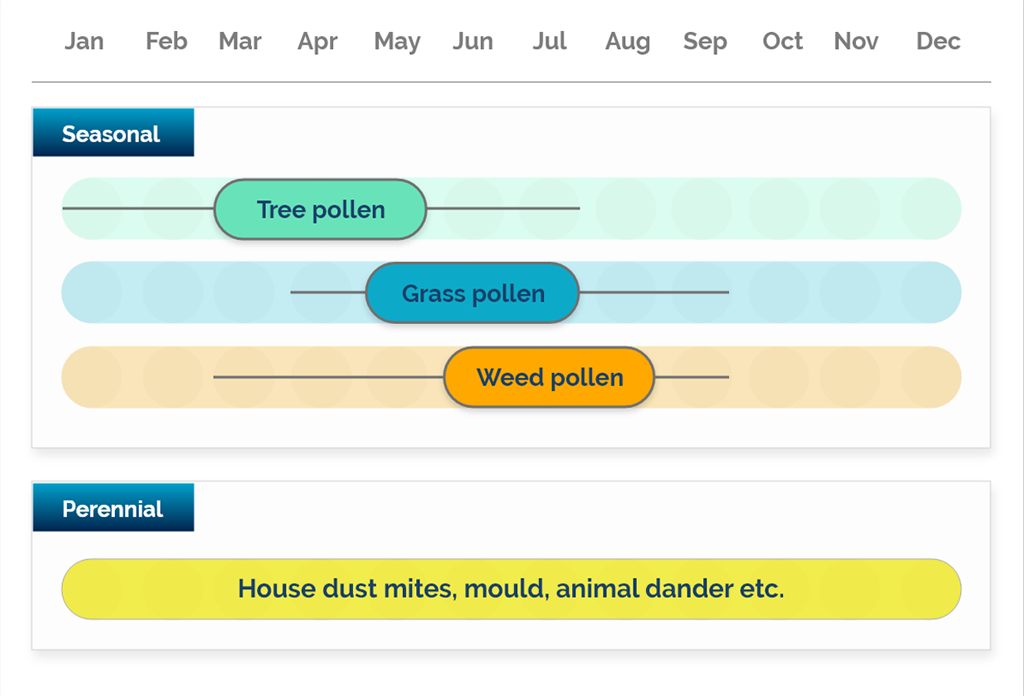When does allergy season start?
The duration of the pollen season varies from year to year and from country to country, and is likely to change in the future due to the influence of climate change. Depending upon where you live and what you are allergic to, the pollen season may start as early as the end of February and last until the beginning of September.
Allergy symptoms appearing in early spring can be attributed to hazel pollen or alder tree pollen, as they bloom at that particular time. Birch pollen, elm tree pollen and oak tree pollen are the major irritants during late spring. Grass, which is the most common cause of hay fever in Europe, is the primary cause of allergy during midsummer. At the end of summer, mug wort pollen can provoke allergy symptoms. Spores from fern, mushrooms and moss are also capable of provoking allergies (including contact dermatitis) or asthma.


